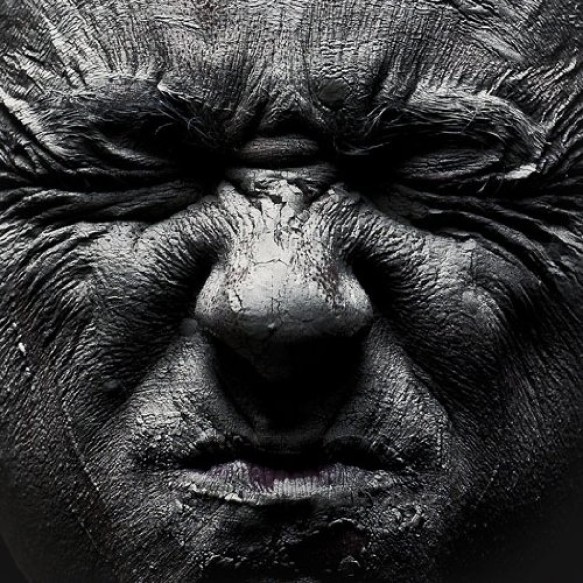Terror, Cold Showers and Living Life to Its Fullest
What is it that keeps us from doing the things we most want to do in life? On the surface, we have myriad reasons: lack of time, money, skill, natural aptitude, poor timing, a spouse, kids, etc. But when we dig a little deeper, we realize it’s usually garden variety fear that’s holding us back. Point of fact, we aren’t even afraid of doing stuff. Consciously or not, we are afraid of the discomfort we anticipate we will feel when we do that stuff–it’s basically that fear of fear FDR was talking about. Rather than enduring the few, brief, uncomfortable pinpricks necessary to confront our fears and move forward, many of us accept slow-drip fear, ongoing, mild discomfort, existential inertia and lives half-lived (sorry if that sounds harsh).
The capacity to act in the face of fear and discomfort is at the heart of a short (free!) eBook called “The Flinch” by Julien Smith (incidentally, the guy behind Breather).
The Flinch’s thesis is pretty straightforward: years of evolution have given humans the flinch, a biological mechanism designed to warn us of and keep us away from danger. Back in the day, we would flinch at an approaching animal, for example, because it might cause us bodily harm (this particular flinch might serve us in the present day, I suppose). We flinched at the novel and unknown, because in that unknown may lie danger. This evolutionary mechanism, so useful when being chased by a pack of hyenas, has become a total liability in the modern world where the vast majority of threats are more perceptual than actual. We flinch at having a tough conversation, starting a new project, asking for help, etc. Smith says this of our reaction to flinch-worthy stimuli:
When coming across something they know will make them flinch, most people have been trained to refuse the challenge and turn back. It’s a reaction that brings up old memories and haunts you with them. It tightens your chest and makes you want to run. It does whatever it must do to prevent you from moving forward. If the flinch works, you can’t do the work that matters because the fear it creates is too strong.
Yet these flinches and their associative fears of the unknown, the foreshadowing of danger based on memories of past injuries, have little or no basis in what’s going on in the present moment, much less real danger. Rarely does anything truly awful–or anything that can’t be reversed fairly easily–happen when we face the things that scares us. We are flinching at our imaginations.
All of this wouldn’t be that big of a deal were it not for the impact. In our avoidance of the flinch, we avoid our lives. As Smith writes, there are no good stories without overcoming our flinch mechanism. He writes:
Behind every moment of courage was a man or woman who faced a difficult internal struggle. When they face it, it becomes an amazing story. They become legends. But if they turn away from the flinch, their stories are unexceptional. They’re like everyone else. They vanish.
What Smith proposes is mastering the flinch. Rather than overcoming it through intellect and will power, he gives homework assignments that put you face-to-face with your flinch mechanism. By far the most provocative is the first assignment. He writes:
Walk up to your shower, and turn on the cold water. Wait a second; then test it to make sure it’s as cold as possible.
Do you see what’s coming? If you do, you should tense up immediately. You should feel it in your chest. You might start laughing to release the tension—and you haven’t even stepped inside. You’re predicting a flinch that hasn’t happened yet. You’re already anxious about it—about something that hasn’t happened and won’t kill you—anxious about something that barely hurts at all.
Ok, do it. Now is the time to step in the shower.
As the cold water hits you, you might shout or squirm. But the discomfort lasts only a second. You quickly get used to it. You get comfortable with cold, instead of trying to avoid it. You put yourself in the path of the shower to speed up the adjustment process.
This is not an exercise in masochism. It’s a way of training yourself, of “seeing the flinch and going forward, not rationalizing your fear and stepping away.” It’s a way to develop a physiological tolerance for facing the things that most scare us–things that pose no real threat (trust me, I have taken prescribed cold showers and lived to tell about it).
Editing our lives means evaluating every facet of our lives, determining whether they contribute or detract from our ability to live to our fullest capacity. Extraneous possessions and too much space, in our opinion, can detract from that objective; in the act of managing, purchasing and paying attention to those things, we might take our eyes off the prize of connecting deeply with others, finding meaningful work, etc. But few things cheat us of the minutes, hours, days and years of our lives like fear. The Flinch, while not promising to rid us of fear, does provide a nice little set of tools for dealing and not being stopped by it.





